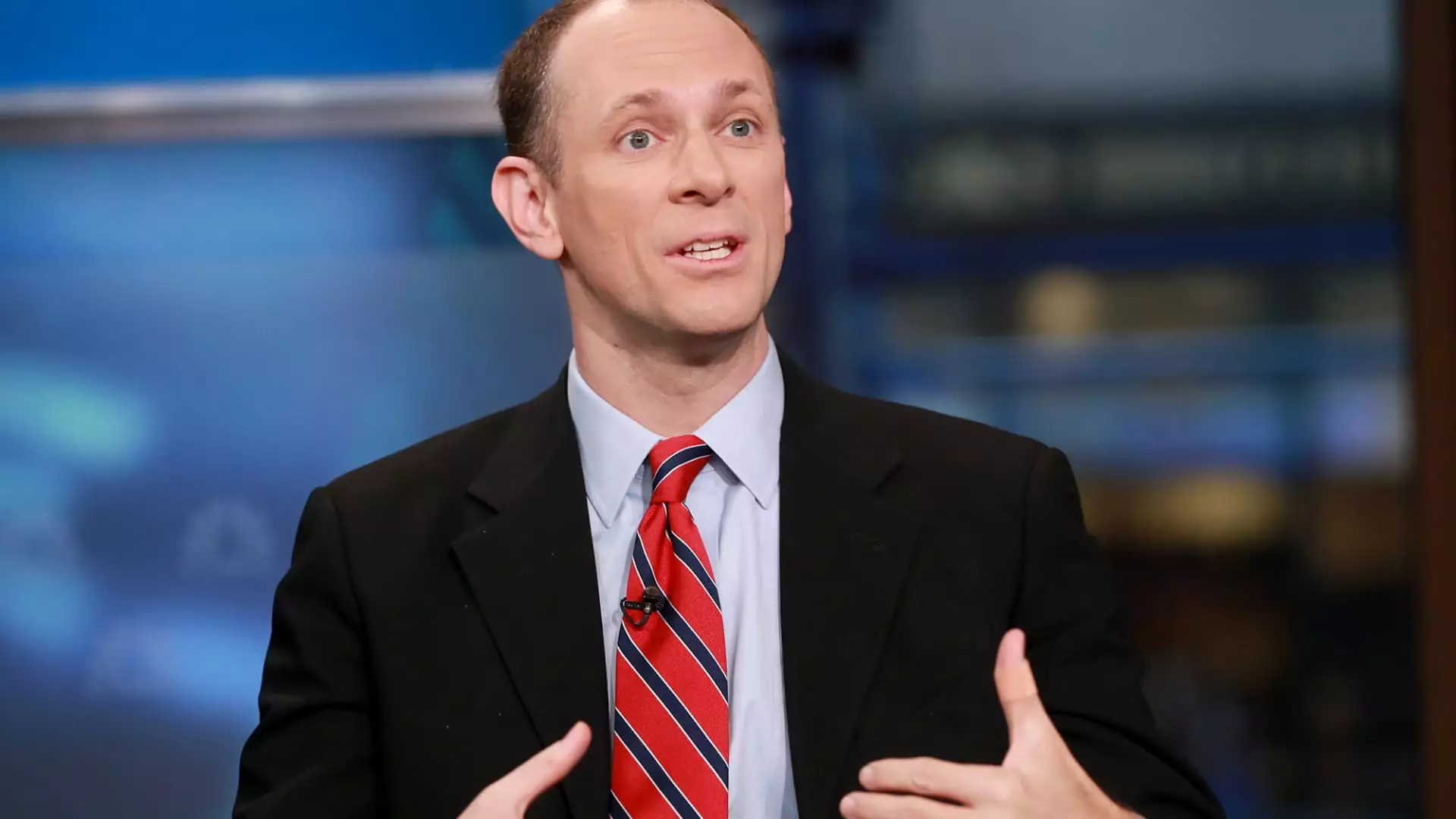In today’s tumultuous political climate, whispers of reducing the Federal Reserve’s autonomy have reached a fever pitch. President Donald Trump’s increasing criticisms of Chair Jerome Powell underscore a disturbing trend that could seriously jeopardize the economic stability of the nation. Austan Goolsbee, President of the Federal Reserve Bank of Chicago, recently highlighted the vital nature of the Fed’s independence during his appearance on CNBC. Without such independence, we risk entering a vicious cycle of economic deterioration defined by spiraling inflation, stunted growth, and escalating unemployment. The gravity of maintaining this independence cannot be overstated; its absence could unravel decades of sound economic policy.
Political Interference: A Recipe for Economic Chaos
When politicians begin to meddle in the central bank’s decisions, the underlying assumption is often that they understand the complexities of monetary policy. However, the history of countries where this interference has occurred paints a dire picture. Economic entities often struggle in environments lacking central bank autonomy. The Fed serves as a bulwark against rash political whims—its role is to put forward the hard measures necessary to stabilize the economy rather than simply cater to populist sentiments.
Goolsbee’s observations remind us that while short-term political gains might seem attractive, they lead to long-lasting negative impacts on the economy. Intervening in the Fed’s deliberations may provide instant gratification for some politicians, but in the long run, it would foster an environment where economic innovations would be stifled under the weight of irresponsible policymaking.
A Dangerous Precedent: The Threat of a “Shadow Chair”
The idea that the Trump administration might attempt to implement a “shadow chair” to marginalize Powell’s authority mirrors tactics employed in authoritarian regimes where political leaders seek to manipulate economic policy to suit their agenda. Creating an alternate power structure under the guise of flexibility could induce uncertainty in financial markets. The prospect of removing or undermining Powell only serves to embolden doubts about the future direction of monetary policy and damages the credibility of the Fed on the global stage.
Instead of demonstrating confidence, such actions reveal an alarming disregard for the principles that govern effective economic management. The message that sends to investors is clear: the U.S. economy may be susceptible to the whims of transient political goals, undermining decades of trust built around a stable, independent monetary policy.
Stagnation: The Hidden Cost of Political Manipulation
Political motivation behind monetary policy threatens to divert resources from the real economy toward expedient political championships. When interest rates remain artificially low or are dictated by political sentiment, we run the risk of igniting inflation while simultaneously stifling growth. Goolsbee eloquently highlighted that when the Fed’s decisions are compromised, the essential willingness to tackle challenging economic realities diminishes. This can lead to stagnation—an imminent danger as we witness market volatility and dwindling investor confidence.
Reforming our monetary approach to align with the fickle desires of politicians will not only exacerbate inflationary pressures but may also create a challenging landscape where businesses shed jobs and innovation is smothered. It is imperative for the long-term well-being of the economic system that the Fed remains free from political chains; anything less is a disservice to future generations.
The stakes are incredibly high, and it’s vital that we heed Goolsbee’s warnings. For the sake of economic stability, the Federal Reserve must remain unshackled from the political maneuvers that threaten to weaken its crucial power to guide our economy through turbulent waters. While the allure of immediate gratification may tempt some leaders, history shows that the consequences of undermining the Fed can lead to disaster.

